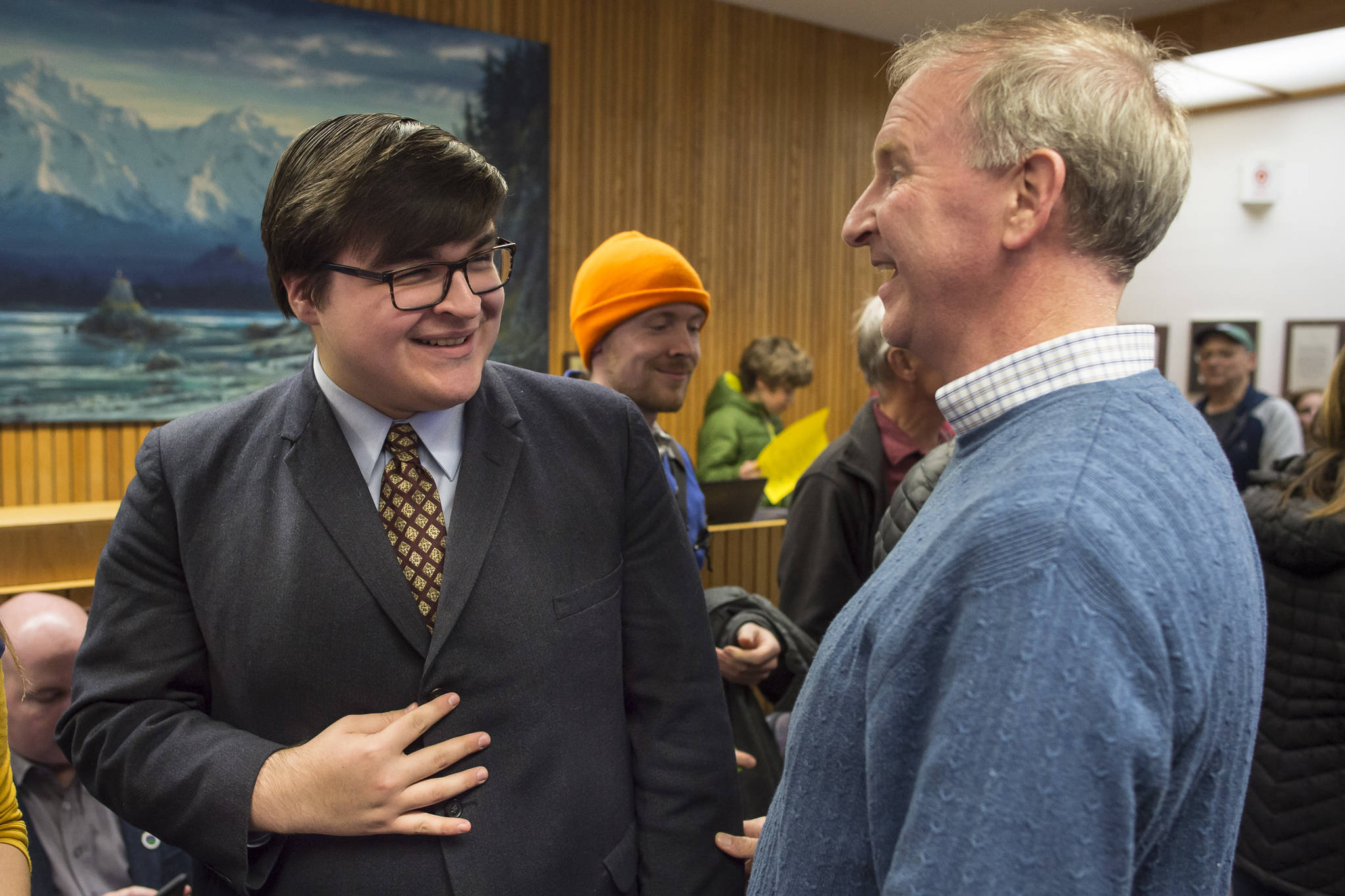As the dull roar of live election results rippled through City Hall, Kevin Allen and Paul Kelly stopped to shake hands.
“Looks like you’re doing better than me,” Allen said. But neither Board of Education hopeful dreaded the night’s eventual outcome.
They were two of the three candidates vying for three openings on the board. The third, Elizabeth (Ebett) Siddon, was out of town for work.
“I think I’m going to win my seat,” Kelly joked shortly before results came in and confirmed that a completely unexpected write-in did not supplant any of the on-ballot candidates.
Unofficial results put the vote count at 4,905 for Siddon, 4,067 for Kelly and 3,581 for Allen, and 310 votes for write-in candidates with 7,070 ballots cast. Voter turnout barely exceeded 26 percent, according to the preliminary numbers.
Allen, 20, who had twice previously ran for school board, said he felt great that he would be seated as a board member at the next Board of Education meeting.
“It should really show people you just don’t know what’s going to happen,” Allen said. “Back in 2016, after I lost that election, I never would have believed I would run and win two years later.”
Kelly said each of the recent elects brings something different to the board.
That includes their goals for their time on the Board of Education.
“I hope to continue building community partnerships that enhance students’ learning opportunities, raise awareness of integration (i.e., of special education students) in classrooms, and move the needle of Kindergarten readiness in Juneau,” Siddon said Tuesday night via text message.
Allen said he hoped to improve student input, and Kelly said he would like to improve the vocational education options available to students, but declined to get into specifics.
“This being my first year, I’m going to focus a lot on learning the ropes,” Kelly said.
Similarly, Siddon said she’d like to learn more about deferred maintenance and Allen said his stances on specific issues, such as class size, may change as he spends more time as a board member.
“I don’t have all the specific answers,” Allen said. “There’s more to learn.”
However, Kelly, Allen and Siddon acknowledged class sizes are larger than would be ideal.
“The more individual attention teachers provide a student, the better,” Kelly said.
Ensuring Alaska Native students have the resources necessary to succeed was also something Allen, Kelly and Siddon agreed was important, but they had differing ideas about how to do so.
Allen, who is Tlingit, said his Thunder Mountain Graduating Class, the class of 2016, graduated 100 percent of its Native students, which means there is already a solution.
“I want to make sure every school in the district does as well as they did in Thunder Mountain,” he said.
Kelly said he had talked with Tlingit & Haida President Richard Peterson about the importance of “place-based” education and teaching Native culture as a present-day subject rather than history.
Siddon said personalized learning help is important as is recognizing students’ differing learning styles.
All the soon-to-be board members were more uniform in the excitement they expressed at working together.
“I look forward to working with them, and the entire board, and hope our diversity of backgrounds and strengths will broadly represent Juneau,” Siddon said.

